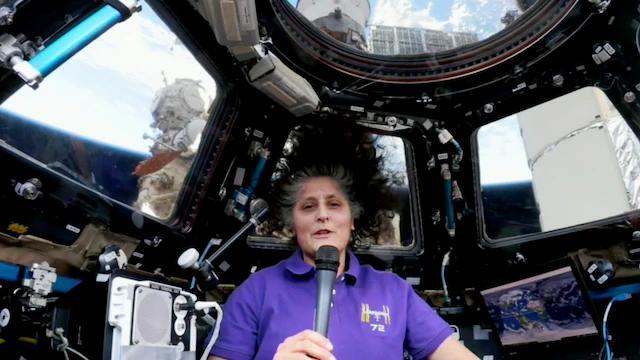
Not the Time to Quit: Williams on Musk’s ‘ISS Retirement’ Remark
In a recent statement, SpaceX CEO Elon Musk sparked controversy by suggesting that the International Space Station (ISS) should be decommissioned before its scheduled 2030 retirement date. The ISS, a collaborative project between space agencies around the world, has been in operation since 1998, providing a unique laboratory for scientists to conduct research in microgravity.
However, NASA astronaut Sunita Williams, a veteran of three space missions, has disagreed with Musk’s opinion. In an interview, Williams emphasized that the ISS still has a crucial role to play in advancing our understanding of space and improving life on Earth.
“I would think that right now is probably not the right time to say quit, call it quits,” Williams said, responding to Musk’s remark. “There are still so many things we can learn from the ISS, and I think it would be a shame to give up on it so soon.”
Williams’ sentiments are echoed by many in the scientific community, who argue that the ISS is an invaluable asset for research and development. The station has enabled scientists to conduct experiments that cannot be replicated on Earth, providing valuable insights into the effects of microgravity on living organisms, materials, and physical phenomena.
One of the most significant advantages of the ISS is its ability to facilitate long-term spaceflight. The station has been continuously occupied by astronauts and cosmonauts since 2000, allowing researchers to conduct experiments over extended periods. This has enabled scientists to study the effects of prolonged space travel on the human body, which is essential for planning long-duration missions to the Moon and Mars.
The ISS has also played a crucial role in developing new technologies and materials. The station’s unique microgravity environment has enabled scientists to test and refine new materials and technologies, such as advanced life support systems, propulsion systems, and sensors. These advancements have the potential to improve life on Earth, from medical treatments to energy production.
Furthermore, the ISS has served as a vital testing ground for deep space missions. The station’s proximity to Earth and its ability to support long-term crew stays have made it an ideal location for testing equipment and procedures for future deep space missions.
Musk’s suggestion that the ISS should be decommissioned is puzzling, given the significant progress that has been made in recent years. In 2019, NASA and its international partners launched the Commercial Crew Program, which provides a safe and reliable way to transport crew members to and from the ISS. This program has enabled scientists to conduct more extensive research and has opened up new opportunities for international cooperation.
Moreover, the ISS has played a critical role in promoting international cooperation and diplomacy. The station is a symbol of humanity’s shared pursuit of space exploration and has brought together nations from around the world to work towards a common goal.
In conclusion, NASA astronaut Sunita Williams is correct in saying that the ISS is not ready to be retired just yet. The station has a wealth of knowledge and experience to share, and its continued operation is essential for advancing our understanding of space and improving life on Earth.
As we look to the future of space exploration, it is crucial that we prioritize international cooperation and investment in space research. The ISS is a shining example of what can be achieved when nations come together to pursue a shared goal, and it is essential that we continue to support its mission.






